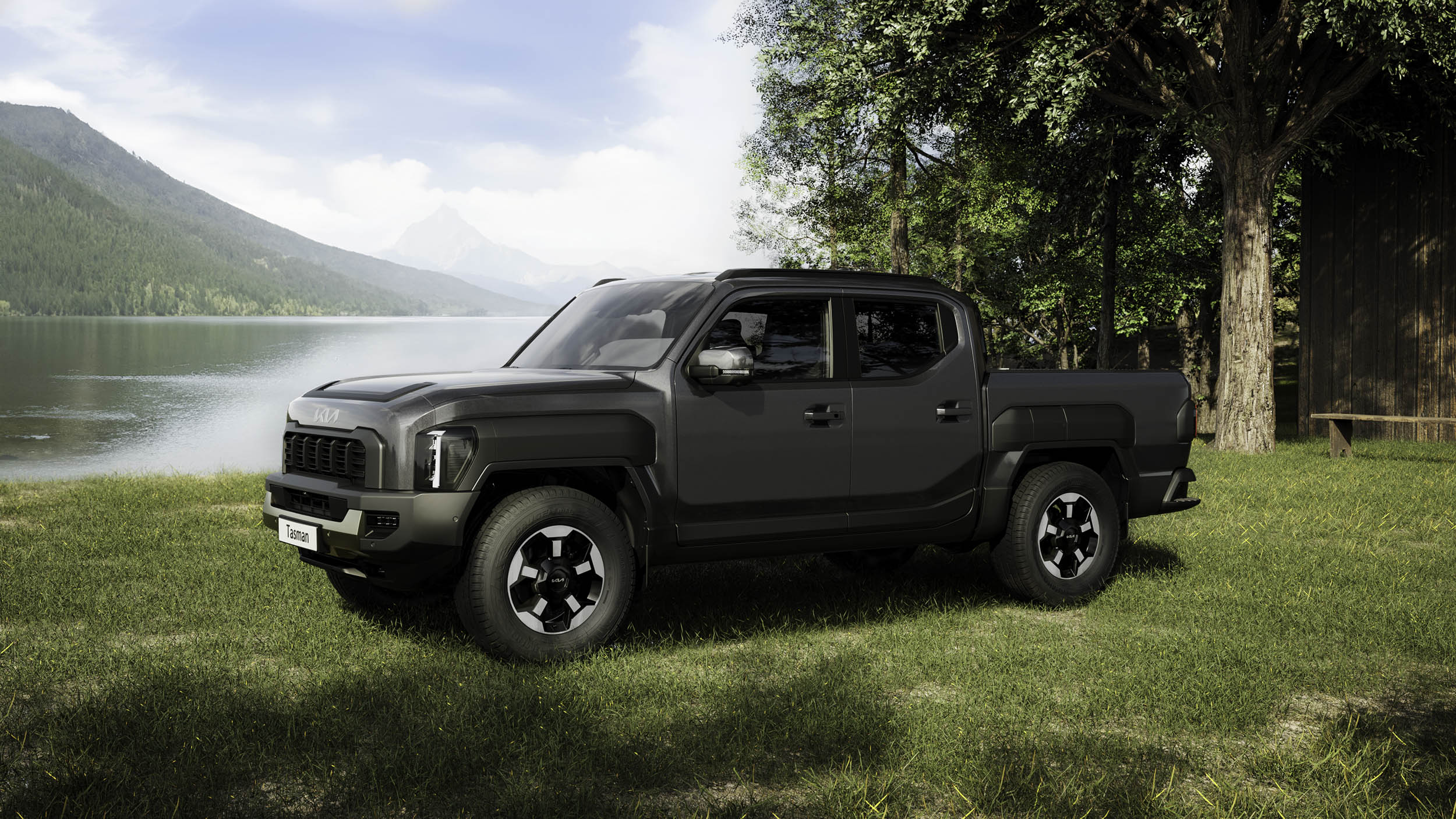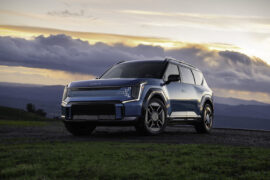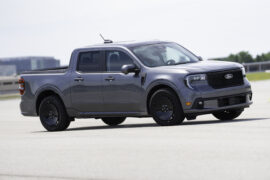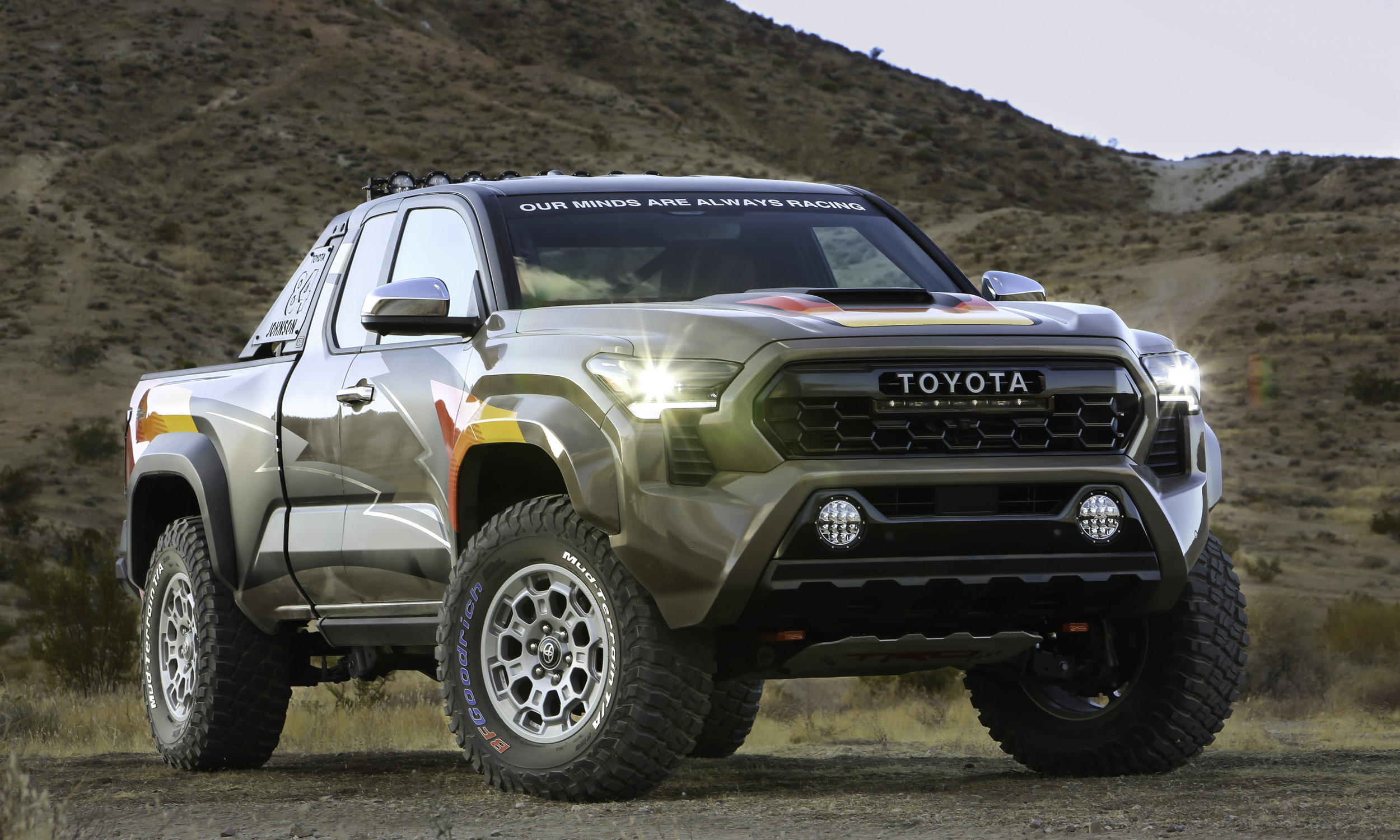After much anticipation, Kia has finally introduced the Tasman, bringing a fresh contender to the midsize truck market in South Korea, Australia, the Middle East, and Africa. U.S. truck fans might feel left out, but this new model aims to meet regional demands and take on competitors like the Ford Ranger. With a variety of trims and configurations, the Tasman is designed for adaptability, catering to diverse drivers and driving conditions.
Buyers have options with the Tasman, including single and double-cab choices, plus a chassis cab configuration. Its boxy, robust design ensures it stands out on the road, featuring eye-catching details from front to back. A massive “KN” logo sits at the rear, offering a bold yet simple look, while the unique side cladding—resembling a mustache—adds a quirky touch that may divide opinions. For those wanting a more traditional look, an optional black trim wraps around the wheel arches for a sleeker appearance.
The front of the Tasman sets it apart, with wide-set vertical headlights flanking a strong grille and Kia’s oversized logo atop the hood, creating a commanding presence. Contrary to rumors of a unibody design like the Telluride’s, Kia opted for a sturdy body-on-frame construction. This choice aligns the Tasman with conventional pickups, positioning it alongside rugged models rather than crossover-based trucks like the Maverick or Ridgeline.
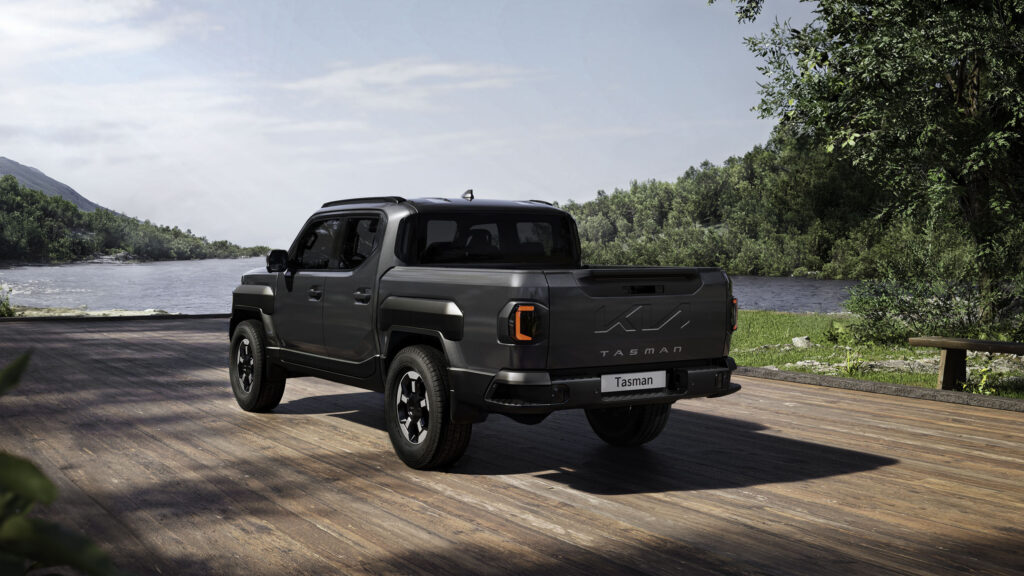
Step inside, and the Tasman impresses with a tech-forward interior that doesn’t sacrifice usability. Three digital screens dominate the dashboard: a 12.3-inch gauge cluster, a 5-inch display, and a 12.3-inch infotainment screen. Kia has balanced digital with practical by including physical buttons for key functions, a welcome touch for those who value both modern design and ease of use in their cabin.
Practicality shines through in features like a locking differential and a low-range drive switch, which make the Tasman ready for rougher terrain. Kia also added a unique plaque on the center console detailing the truck’s dimensions: it measures 212 inches in length, 75 inches in width, and 75 inches in height, with a wheelbase of 128.7 inches, promising a stable experience on various surfaces.
Powertrains differ by region, allowing the Tasman to handle diverse terrain. South Korea gets a 2.5-liter gasoline engine that delivers 277 hp and 311 lb-ft of torque, paired with either a six-speed manual or an eight-speed automatic transmission. Australians have a 2.2-liter turbodiesel option, providing 207 hp and 325 lb-ft, tuned for heavy-duty tasks like towing. Both engines reach a top speed of 115 mph, although acceleration will vary slightly between them.
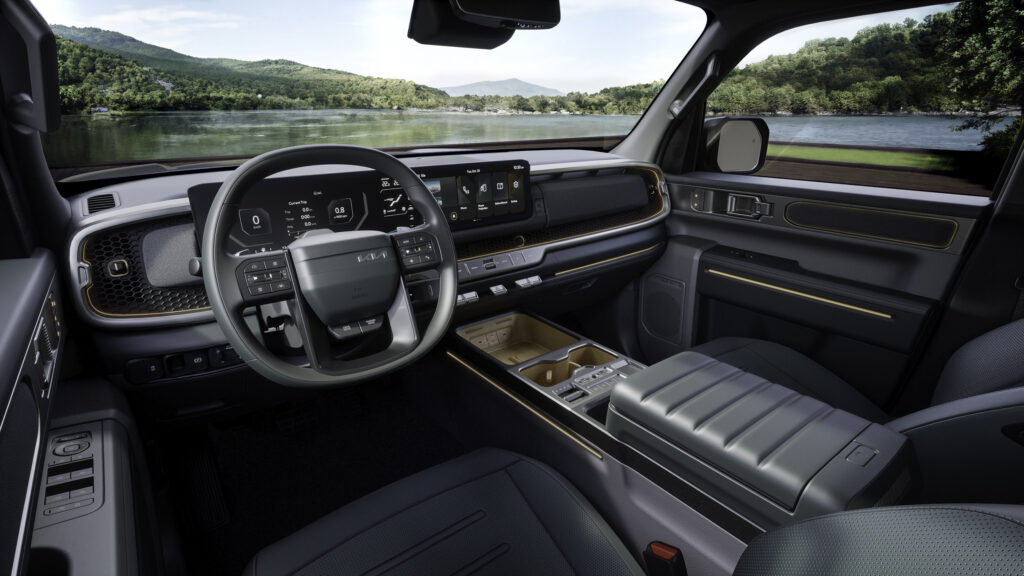
Customers in the Middle East and Africa can enjoy both engine options, each matched with a 21.1-gallon fuel tank. The Tasman’s towing capability reaches up to 7,716 pounds, with payloads between 2,242 and 2,635 pounds, ensuring it’s ready for both work and play. Its spacious 41.4-cubic-foot bed meets the needs of most owners looking for substantial cargo space.
Underneath, the Tasman boasts a double-wishbone front suspension and a tough rear axle with leaf springs, emphasizing durability. It can tackle 31.5 inches of water at low speeds, aided by waterproof connectors, adding to its resilience. Multiple drive modes, like Desert, Mud, Snow, and Rock, adapt the 17- and 18-inch all-terrain tires to different surfaces for maximum traction and stability.
Interior space is another highlight, with Kia claiming top-tier headroom, shoulder room, and legroom in the second row. Rear seats recline between 22 and 30 degrees, and hidden storage compartments add convenience. Other touches include dual wireless chargers, a premium Harman Kardon sound system, a fold-out console table, and A-pillar grab handles, enhancing comfort and usability.
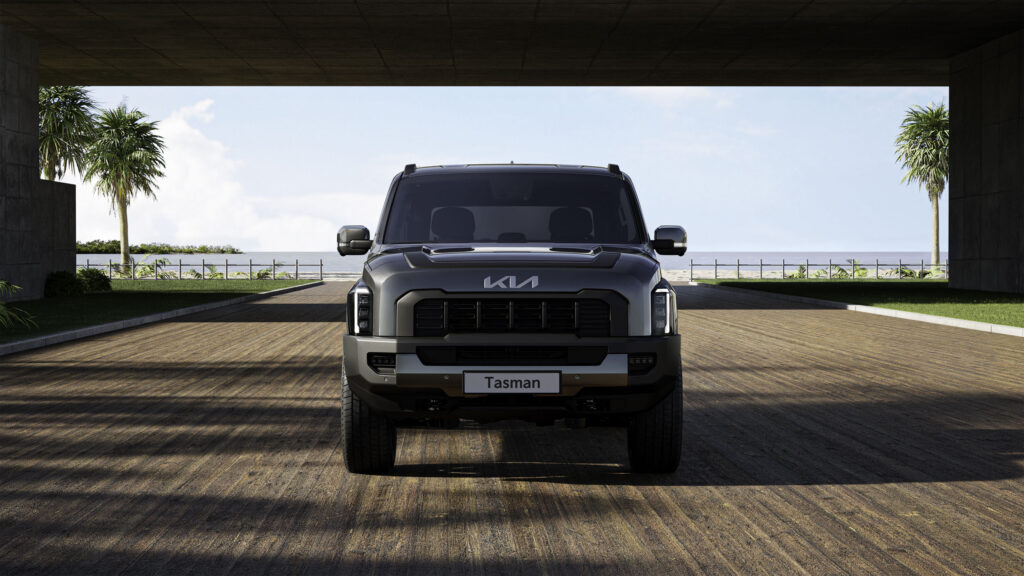
Kia’s 13 accessory options include beadlock-style wheels, side steps, and a canopy with butterfly doors. Other choices like a sliding tonneau cover, roll bar, and a roof rack for a rooftop tent make the Tasman even more versatile, catering to those with adventurous lifestyles.
Scheduled for a South Korean release in early 2025, the Tasman will soon be available in Australia, Africa, and the Middle East, with its official debut at the Jeddah International Motor Show. This launch taps into the strong regional demand for capable pickups.
Looking ahead, Kia plans further truck options, including an electric model by 2027 and possibly an all-electric Tasman. To sell the Tasman in the U.S., Kia would need to navigate the 25% “Chicken Tax,” a tariff on imported light trucks that encourages local production; this might mean manufacturing the Tasman at its Georgia facility.

